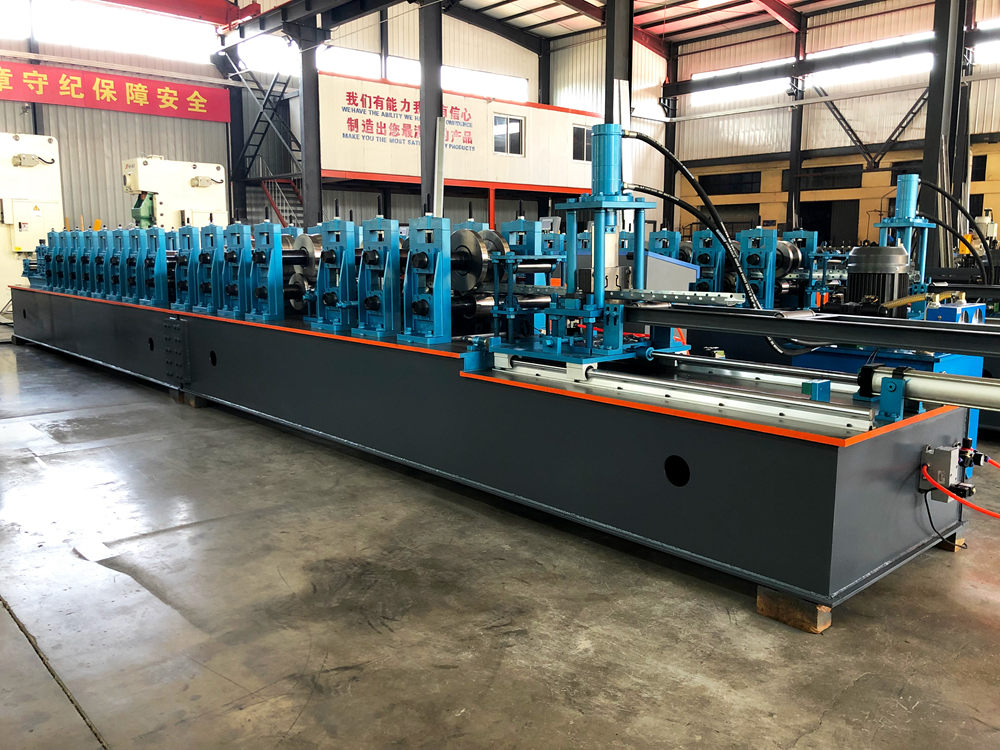
Mould Cutting Downpipe Roll Forming Machine Innovations in Manufacturing
In today’s rapidly evolving manufacturing landscape, efficiency, precision, and sustainability are paramount. One remarkable solution that addresses these needs is the mould cutting downpipe roll forming machine. This advanced machinery not only enhances production capabilities but also ensures high-quality outputs, making it a vital tool for manufacturers involved in the production of downpipes and similar components.
Understanding Roll Forming Technology
Roll forming is a continuous bending operation in which a long strip of metal is gradually shaped through a series of rollers to create desired profiles. Unlike traditional methods, which may involve cutting or machining processes, roll forming is characterized by its ability to produce complex shapes with minimal waste and maximum speed. This technology is particularly advantageous in the manufacturing of downpipes, which are essential in rainwater drainage systems.
Key Features of Mould Cutting Downpipe Roll Forming Machines
1. Precision Engineering Mould cutting downpipe roll forming machines are designed for precision. The rollers are precisely manufactured to ensure that each pass produces an accurate profile, reducing the risk of defects. This precision is critical in applications where fitting and alignment are essential.
2. Customizable Die Sets One standout feature of these machines is their ability to be equipped with customizable die sets. This allows manufacturers to produce a variety of downpipe sizes and shapes without the need for extensive reconfiguration, thus saving time and labor costs.
3. Mould Cutting Integration Integrated mould cutting capabilities reduce the number of individual machines needed in a production line. By combining roll forming and cutting into one process, manufacturers can streamline operations, thereby enhancing productivity while minimizing handling and setup times.

4. Material Efficiency The roll forming process is inherently material-efficient as it generates minimal waste. The design of the mould cutting downpipe roll forming machine allows for the optimal use of raw materials, which not only reduces costs but also lessens the environmental impact associated with manufacturing.
5. Automated Operation With advancements in automation, many of these machines are equipped with automated controls that allow for quick adjustments and real-time monitoring of the production process. This capability means that manufacturers can adapt to changing demands more swiftly and efficiently.
Applications of Downpipes
Downpipes play a crucial role in building drainage systems. They transport rainwater collected from roofs and facilitate its safe discharge to the ground or drainage systems. The need for high-quality downpipes is ever-increasing due to growing urbanization and the associated infrastructure demands. Furthermore, the use of high-strength, corrosion-resistant materials in conjunction with mould cutting downpipe roll forming machines ensures that these components can withstand harsh environmental conditions, significantly extending their lifespan.
The Future of Roll Forming Technology
As industries continue to push for higher efficiency and sustainability, the evolution of roll forming technology, particularly the mould cutting downpipe roll forming machine, is set to advance further. Innovations such as smart machinery equipped with IoT capabilities could allow for predictive maintenance and data collection, enhancing operational efficiency. Moreover, integrating eco-friendly materials and processes can align production with global sustainability goals.
Conclusion
In conclusion, the mould cutting downpipe roll forming machine epitomizes the advancements in manufacturing technology aimed at improving efficiency, precision, and sustainability. With features that cater to the dynamic needs of modern production lines, these machines are revolutionizing how downpipes and related components are manufactured. As industries continue to innovate and enhance their production capabilities, the role of advanced machinery like the mould cutting downpipe roll forming machine will only become more significant in shaping the future of manufacturing.